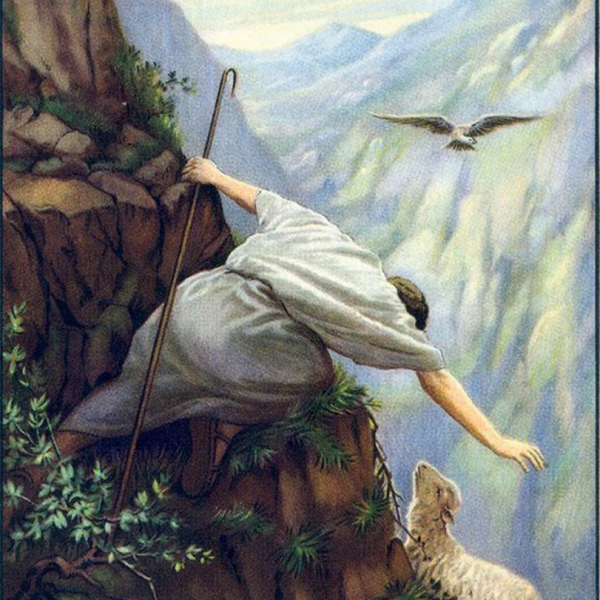

The parable of the Lost Sheep and coin are found in Luke 15:4-7 and was our focus this week in our Reflective Liturgies. We gathered together and reflected this week on a great message. I was extremely pleased to have our SRC leaders help out with the Liturgies. I would like to thank our Year Level Coordinators from 7, 8 and 9 for their support to make the Liturgies run smoothly.
The Gospel of Luke 15:
Now the tax collectors and sinners were all gathering around to hear Jesus. But the Pharisees and the teachers of the law muttered, “This man welcomes sinners and eats with them.” Then Jesus told them this parable: “Suppose one of you has a hundred sheep and loses one of them. Doesn’t he leave the ninety-nine in the open country and go after the lost sheep until he finds it? And when he finds it, he joyfully puts it on his shoulders and goes home. Then he calls his friends and neighbours together and says, ‘Rejoice with me; I have found my lost sheep.’ I tell you that in the same way there will be more rejoicing in heaven over one sinner who repents than over ninety-nine righteous persons who do not need to repent.
The Parable of the Lost Coin “Or suppose a woman has ten silver coins and loses one. Doesn’t she light a lamp, sweep the house and search carefully until she finds it? And when she finds it, she calls her friends and neighbours together and says, ‘Rejoice with me; I have found my lost coin.’ In the same way, I tell you, there is rejoicing in the presence of the angels of God over one sinner who repents.”
The significance of this story was the recurring theme in these parables of judgment. After the woman has found the one coin she lost, it becomes more valuable than all of the other nine coins even though they are of equal value in terms of money. This is similar to the idea that if one were to be a sinner and become lost from God, they would be preferred in the kingdom if they change their ways than nine people who do not repent but claim to be good. A person who has sinned but has begun repentance is much more valued by God than a person who sins and repents but claims not to.
The reflection that was shared with students was taken on very well.
The mission of Jesus to “the last, the least and the lost” is a familiar theme of the four gospels. Jesus Himself declared that He was sent only to the lost sheep of Israel (Matthew 15:24). In the gospel reading today, Luke introduces chapter 15 with the parables of the Lost Sheep and the Lost Coin.
In the real business world, it would be foolish for a smart shepherd to leave the 99 sheep and expose them to danger in order to look for that single lost sheep. Yet the gospels are replete with stories of reversals where Jesus would do something that is contrary to human instinct and behaviour. The Parable of the Lost Sheep is one of them.
Jesus is full of compassion, and He has taught His disciples to be compassionate too. His love for His people is overflowing. That is the ultimate essence of the parable of the Lost Sheep. He is the Good Shepherd after all. He never wanted anyone of His sheep to get lost and if, for any reason one sheep gets lost, He will do everything to find it. If He finds it, imagine how happy He would be! We can think of this and relate it to a friend or family member that may need help. Should we just give up on this person even if we have tried many times?
The same is true with the Parable of Lost Coin. In today’s world, time is money, and nobody would spend the whole afternoon looking for a lost coin. Still, even if you do it and successfully find it, would you jump up and down for joy and tell everyone about it? Your friends would laugh at you if you did! Yet the lost coin, like the lost sheep, has a profound meaning. It actually represents you and me.
As sinners, we are the lost sheep and the lost coin in the sight of God. For our Creator, we are worth more than actual sheep and coins. So, He sent His only Son to look for us. If He finds us and we repent and go back to the fold, there will be a thunderous applause in heaven!
Let us follow the example of the Good Shepherd. Looking for one lost sheep is worth our time and effort. There are many of them in our world today. The joy of finding them and bringing them back to God is beyond compare.
Mr Sam Johnstone
Director of Mission & Faith


